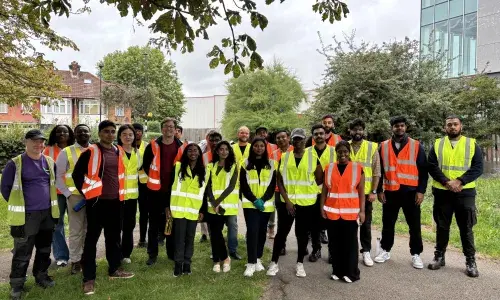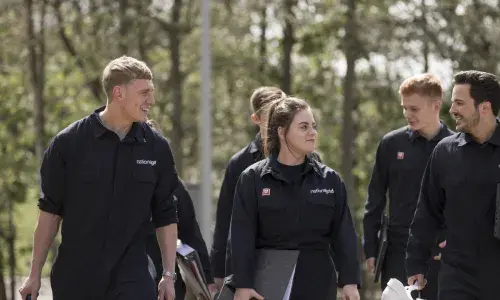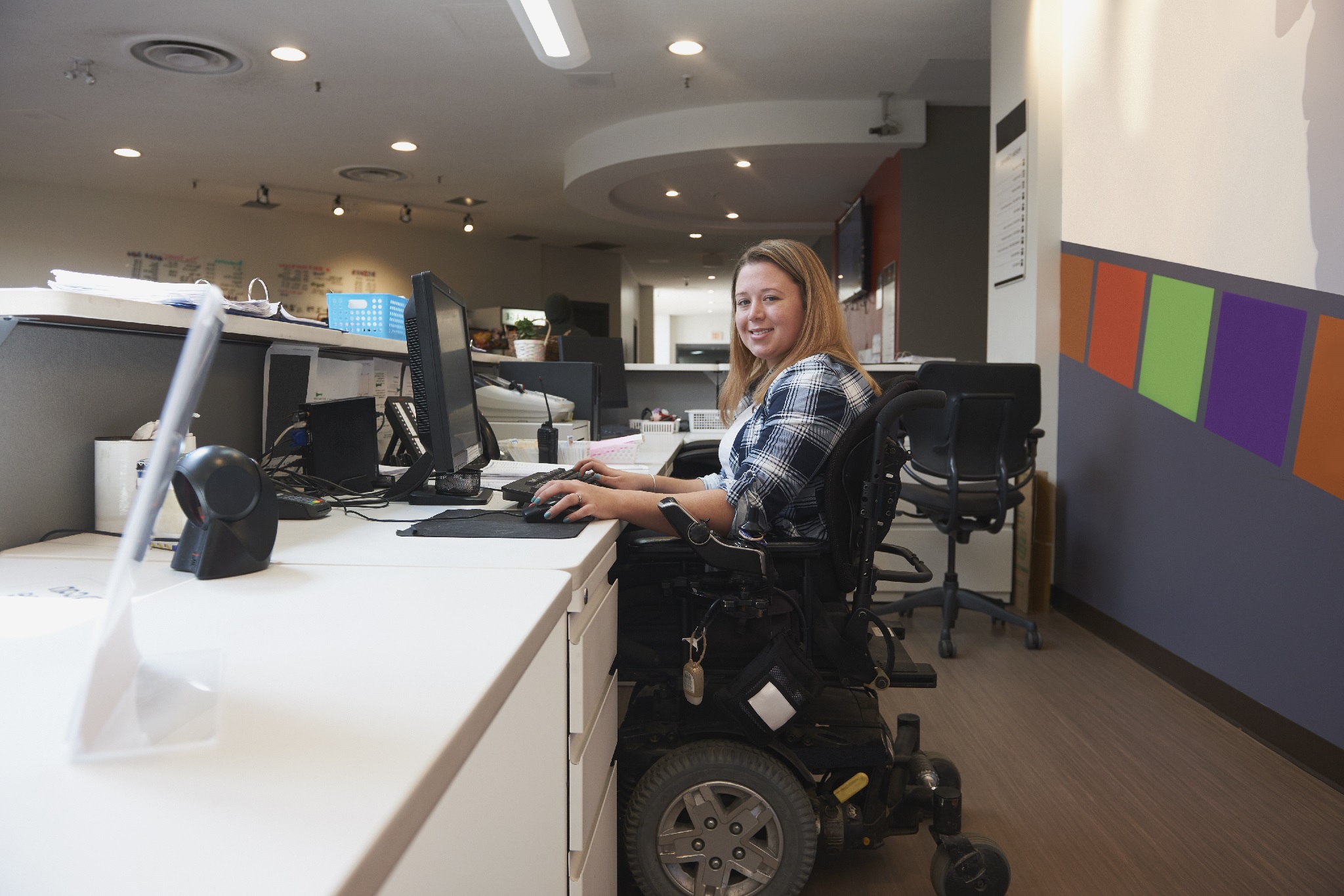
National Grid: inviting everyone to bring their whole selves to work
Providing an inclusive and diverse workplace brings many benefits. Here UK HR Director Sarah Stanton explains what National Grid is doing to help support those with disabilities, to ensure they can achieve their full potential at work. For Sarah this is both a professional goal and a personal passion as she has a disability herself, wearing hearing aids to help combat tinnitus.
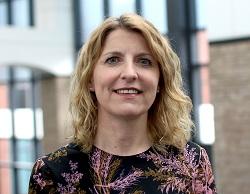
Around six years ago, I began to develop tinnitus, which is the perception of noise in your ear or head. I hear a high-pitched whistling and this impacts my ability to hear clearly. It was tricky in meetings, especially in a large boardroom or on a conference call with lots of people talking. At home, my kids noticed my hearing wasn’t as good as it used to be too. I could hear, but was Iosing clarity. I would miss words and found it hard to follow everything. Because of the tinnitus, I’d been having annual hearing checks to monitor its impact, and after three years, It became evident I would benefit from hearing aids.
Disabilities aren't always visible
So, in January 2018, I began wearing hearing aids. It was the best decision I have ever made, as they’ve changed everything for the better, but my experience has also taught me that disability isn’t always obvious.
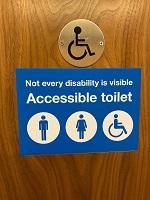
Before I started wearing them, no one would have known there was anything wrong. That’s not unusual as, of the one in five working adults with disabilities, 80% have conditions that aren’t visible.
Building awareness among colleagues
It can be a challenge for managers and team members as they may not be aware of a condition that affects someone at work. That’s why it’s important to create a working environment where people feel comfortable about letting their colleagues know about their disability and the obstacles it can create for them. This means adjustments can be made to support them, so that no one is left feeling excluded through not being able to work to their full potential. It’s vital that this process is ongoing as conditions can develop over time or flare up sporadically, so needs may change.
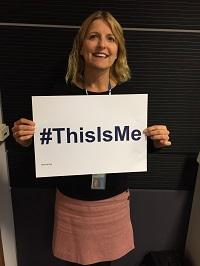
While I do have a personal interest in this, and recently participated in a campaign called #ThisIsMe for National Inclusion Week to champion being more open about disability at work, it extends beyond the personal for me. As UK Global HR Director, I want to attract the best talent to work with us on the energy transition as we help the UK reach its net zero target by 2050 and to support everyone to allow them to bring their full selves to work.
Diversity brings clear benefits
It’s well-documented that a diverse workforce is good for business; widening the talent pool and providing new perspectives and skills to drive innovation.
National Grid has a number of Employee Resource Groups (ERGs) that give a voice to our colleagues across diverse groups. They provide a vital support network, while also offering an opportunity to increase visibility and raise awareness for issues around gender, sexual orientation, disability, ethnicity, faith and new joiners to National Grid.
Enabling is our ERG for colleagues impacted by disabilities or health conditions, including those who are carers for others. Its purpose is to support an inclusive organisation and ensure we all reach our full potential.
We recently achieved Level 2 of the Government’s Disability Confident Scheme. Specific actions we have taken include adapting our website pages to assist people with dyslexia or visual colour issues and giving candidates extra time to complete specific assessment tasks, where relevant, in our selection processes.
It’s well-documented that a diverse workforce is good for business; widening the talent pool and providing new perspectives and skills to drive innovation.
We are also carrying out accessibility tours at our sites, to learn from the perspectives of those with disabilities. This has led us to make changes such as ensuring door entry systems are accessible for wheelchair users and that counters in the canteen are at a suitable level.
Providing support at all levels
Our team is working to make sure line managers know where to look for help to support any team members who need workplace adjustments; and they have access to two advice lines, one internal and one provided by the Business Disability Forum. Meanwhile our EmployAbility scheme delivers supported apprenticeships to young people with learning disabilities aged between 17 and 25.
The goal is to enable everyone to bring their whole selves to work, to feel supported and confident, whether that’s about a disability or any other aspect of their lives. It is the only way we can reflect the communities where we work and helps ensure we are attracting the diverse talent that we need to tackle the energy challenges we face.
Find out more about careers at National Grid


